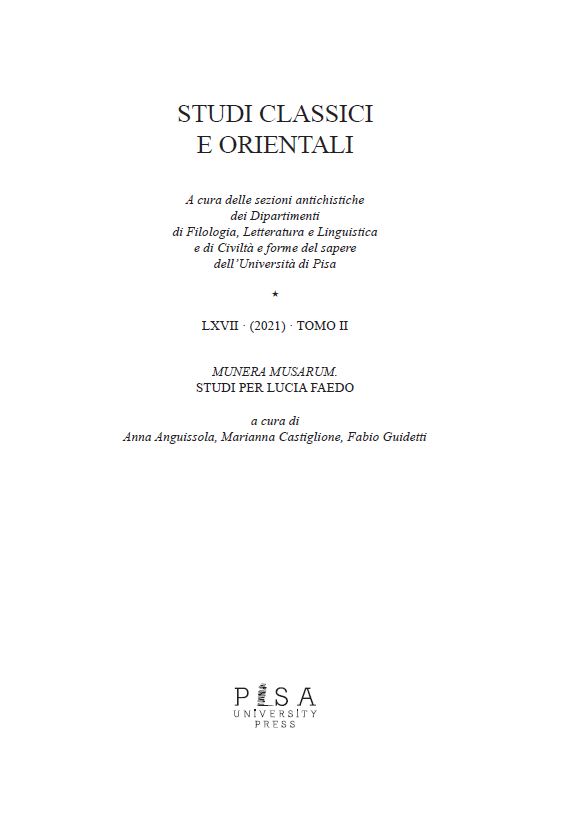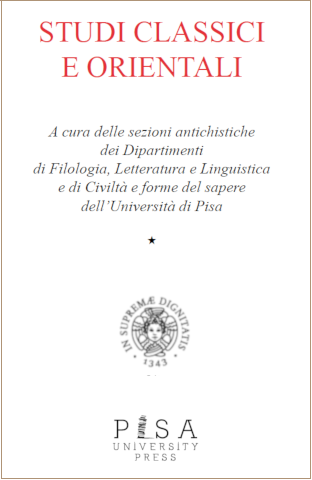SIGNUM DIVO AUGUSTO PATRI AD THEATRUM MARCELLI
Abstract
In 22 CE, Livia and Tiberius dedicated a signum of the divus Augustus pater in the area of the theatre of Marcellus, whose iconographic scheme is probably reproduced on sesterces, later restituti by Titus and Nerva, with the legend divus Augustus pater. The name pater is innovative, as it assimilates the deified princeps with the oldest circle of deities within the Roman religion, who were worshipped under the names of pater and mater. New evidence has now come to light regarding the appearance of the statue, thanks to the discovery, at the site of the Colonia Virtus Iulia Ituci (now Torreparedones, Baena), of a statue depicting the god Augustus in tunic and toga, seated on a throne, with a radiate crown and laurel wreath on his head, scepter in his left hand, and probably a Victory, or a patera, in his open right hand. With the support of fragment 31 s of the forma Urbis marmorea, this paper argues that the statue dedicated by Livia and Tiberius was located in the courtyard with exedra behind the stage of the theatre of Marcellus. The fragment of the forma shows two close quadrangular structures, in front of which were two smaller quadrangular elements. The prevailing hypothesis is that they were two small temples, or two aediculae, with altars in front of them. It is possible, however, that they were two colossal statues with an altar in front of them: one of the divus Augustus pater, the other of Livia as diva Iulia, placed there in 42 CE, following her consecratio by her nephew, Claudius. Damaged as a result of one of the cataclysms that affected the area in the following two centuries, the statues may have been replaced, as is suggested by the discovery of an altar from the age of Commodus, bearing scenes from the life of Hercules, which was placed in the space occupied, according to fragment 31 s of the forma Urbis, by one of the smaller squares.



